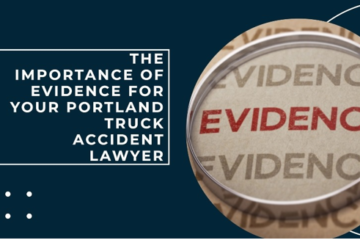Facing trouble after an arrest can feel scary and confusing. Bail is money you pay to get out of jail while you wait for your court date. This article will guide you through how bail bonds service can help from start to finish.
Understanding Bail Bonds
Bail bonds help people get out of custody before their trial. They provide a way to pay for the bail amount if someone can’t afford it themselves.
What Are Bail Bonds?
Bail bonds are a way to get someone out of jail until their court day. Typically you will approach a company offering San Diego Bail Bonds (or indeed in another location) and they will give the necessary amount to the court so that you can be freed. This can make the process more affordable, after which there is typically a repayment plan and a good behaviour clause to ensure that they are not sent back to jail for a different charge.
So, they take care in picking who they help.
The bail bond system uses agencies that promise the court the suspect will show up. They charge a fee for this service. Often, this is much easier than finding all the bail money yourself.
If everything goes well, the person gets out of jail fast without needing lots of cash right away.
How Do Bail Bonds Work?
Moving from the basics of bail bonds, we delve into their workings. A bail bond comes into play after an arrest. The court sets a bail amount during a hearing. This is money that must be paid for the accused to go free until their court date.
If the defendant can’t pay this amount, they can reach out to a bail bondsman.
A bail bondsman offers to post bail for them. In exchange, the defendant pays a fee – usually about 10% of the total bail amount. Also, friends or family might put up collateral like property or cars with the bondsman as security.
If the accused skips their court date, things get complicated. The bondsman can hire a bounty hunter to find them and bring them back within a grace period for refunding. If failed, both cash and collateral may be lost.
Types of Bail Bonds
Types of Bail Bonds vary based on the situation:
– Different types include cash bond, property bond, and surety bond.
– Each type serves a unique purpose and is used in different scenarios.
Cash Bond
A cash bond means you pay the full bail amount in money. This can be hard because bail for small crimes might be $100 to $500, but serious ones can go up to millions. You can use cash or sometimes a credit card to pay this at court.
Courts hold the cash until the case ends. If the person goes to all their court dates, they get the money back minus some fees. But if they skip bail, they lose it all. This makes a cash bond risky yet simple for those with enough cash on hand.
Surety Bond
Moving on from the concept of a *Cash Bond*, let’s take a closer look at a *Surety Bond*. A **surety bond** involves a third-party entity, often an insurance company or a bank, assuring the court that the defendant will appear for all their required appearances.
This bond is usually facilitated by bail agents and typically requires collateral from the defendant or their family to secure it. In case the defendant fails to appear, this third party pays the full amount of the bail.
Property Bond
Let’s talk about property bonds. This type of bond uses property as collateral instead of cash. If the defendant doesn’t show up in court, the court can take this property. Common types of collateral include real estate, vehicles, valuables, investments, and savings accounts.
This setup allows defendants to use their valuable possessions to secure their release before trial. However, it comes with the risk of losing these assets if they fail to meet their legal obligations.
Personal Recognizance Release
A personal recognizance release is when a person doesn’t need to pay bail and is released based on the promise that they’ll show up for court. It’s usually for minor crimes or if the person has no criminal history and promises to attend all their court hearings.
Immigration Bail Bond
Moving on from the process of obtaining a bail bond, let’s shift our focus to immigration bail bonds. These are used for individuals detained due to immigration reasons and function similarly to surety bonds but often at higher amounts.
In cases involving immigration, bail amounts can be significantly higher due to the perceived flight risk.
The Process of Obtaining a Bail Bond
To get a bail bond, the first step is to contact a bail bond agency. You’ll have to fill out some paperwork and then the agency will post your bail so you can be released.
Contacting a Bail Bond Agency
Contacting a bail bond agency requires specific information: the full name of the arrested person, the jail’s location, their booking or report number, the charges they are facing, and any other relevant arrest details.
This information is essential to quickly obtain assistance. Finding accurate arrest details can sometimes be challenging, especially if the individual is in a large or busy city. If you’re trying to locate someone in custody, especially in areas like Indianapolis, the inmate tool lookup indianapolis can be a useful starting point for gathering these arrest details efficiently. It’s important to remember that some states, such as Illinois and Massachusetts, do not permit bail bonds.
Completing the Paperwork
When you’re seeking a bail bond, it’s crucial to complete the necessary paperwork. This involves signing documents to secure the services of the agent and paying a fee (usually a percentage of the total bail amount).
Moreover, you may need to sign over any collateral necessary for the bond, ensuring that everything is in order for your release from detention.
During this process, you’ll work through various forms with great care. It’s crucial to emphasize that completing this paperwork correctly and promptly supports your path toward securing your release as smoothly and efficiently as possible.
Posting Bail and Release
After completing the paperwork, you or your representative will meet the bail bond agent at the jail to post bail for the release of the person who was arrested. The process can take anywhere from 30 minutes to several hours depending on how busy the facility is.
After posting bail and completing any necessary paperwork, the person who was arrested will be freed from jail.
The defendant or their representative pays a non-refundable fee of around 10% of the total bail amount to the bail bondsman. Once this fee is paid and all necessary paperwork is complete, then comes freedom from behind bars.
Conclusion
In wrapping up, understanding bail bonds is crucial for anyone maneuvering through the legal system. From cash bonds to surety bonds, various options exist to secure release from custody.
Bail bond agencies play a pivotal role in this process by providing financial assistance and ensuring court appearances. Moreover, it’s crucial to recall the significance of communication and compliance throughout this journey.
Ultimately, being informed about bail bonds empowers individuals involved in the criminal justice system.




